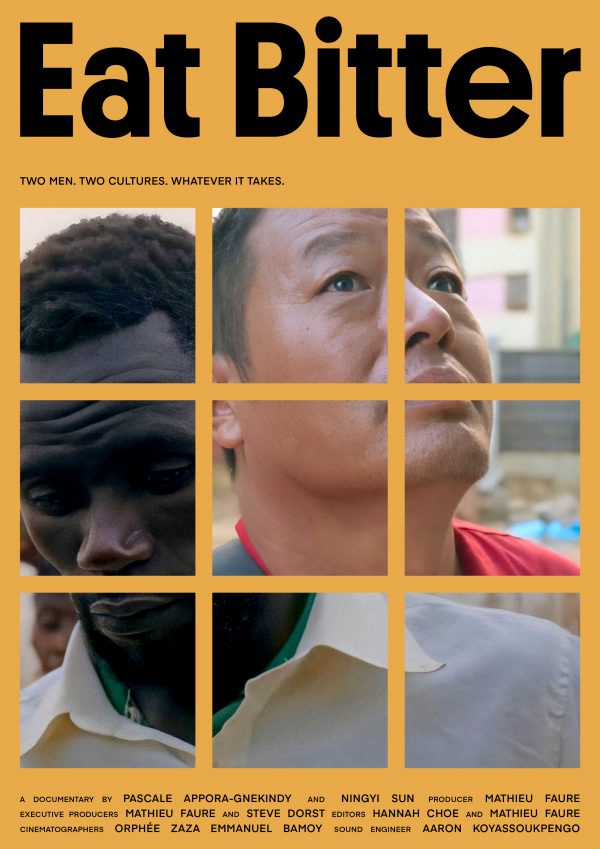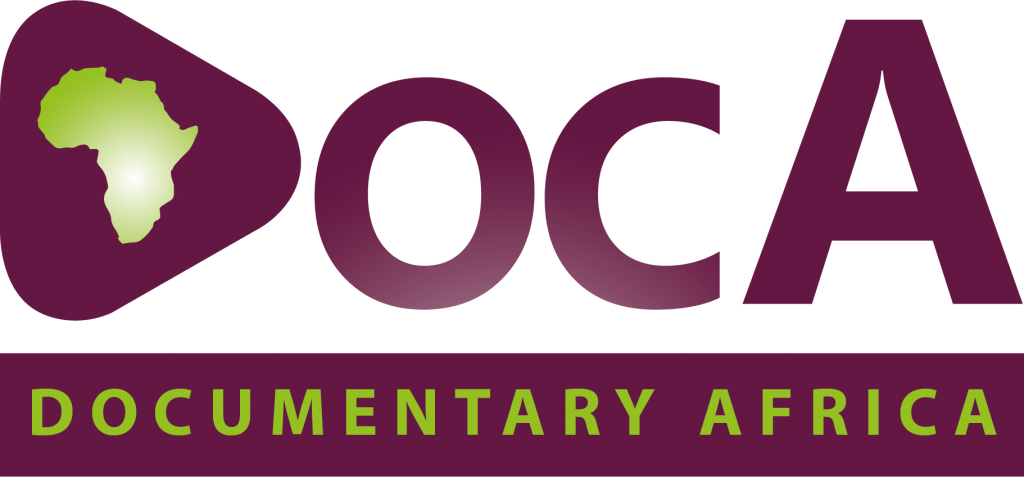Appora-Gnekindy Pascale
DIRECTOR
Pascale APPORA-GNEKINDY, une Informaticienne de formation, après sept ans dans le monde professionnel, je me suis intéressée au cinéma, car passionée. Cette passion m’a incitée à postuler pour une formation cinématographique très sélective à Bangui. J’ai participer à des ateliers axés sur la réalisation de films documentaires par l’Alliance française de Bangui et les Ateliers Varan de Paris. J’ai réalisé deux films Mes Yeux Pour entendre (2017) et Deux sœurs (2019). Eat-Bitter est mon premier long métrage documentaire, une coproduction internationale avec une équipe diverse.
Eat-Bitter (2023)

Where it premiered
CPH:DOX – Danemark
What fuels your motivation and passion for storytelling, and what sources or inspirations contribute to this drive?
I wanted to give a voice to the voiceless. Very often low-class people or those who don’t have a rewarding job are looked down upon by the rest of society, whereas these people are rich from the inside. So there’s a lot of stereotyping of others. I drew my inspiration from my personal life, from the daily reality of my community, and from every day life.
In the context of your filmmaking journey, can you identify some of the significant challenges encountered with regards to the story, which may include aspects like characters, filmmaking techniques, safety concerns, your own positionality, various perspectives, lighting, sound, and the editing process?
The process of producing Eat-Bitter was full of challenges. The most striking was that of finding a good way of working despite our different cultures. Mixing Central African, American, Chinese and French cultures to find a happy medium, understanding and accepting each other’s differences was a big challenge. The good thing was that we all learned from each other, and it was a stressful, learning experience. Another technical challenge was the Internet. Being in a country where the internet is a rare gem, finding time to be all online for team meetings, having a good internet connection to upload rushes, finding a place where there’s electricity 24 hours a day were the challenges I faced.
Talking about the characters, our main local character Thomas is an unpredictable person. Sometimes we’d have to look for him for two or three days to find him, and he could disappear at any moment during a shoot, so we’d either have to postpone the shoot or scour the whole neighborhood to find him. We had to film during a period when our country was going through political troubles. This was dangerous for our safety. I was personally arrested while filming by the presidential guard, and detained for 24 hours for being in the wrong place at the wrong time. But that didn’t stop us from continuing filming, even if we had to go into rebel-controlled areas at night.
The editing process, which took place mainly in the USA, was a long, stressful and highly experiential period for me and the whole team. We hold weekly meetings after editing and viewing a sequence to give direction to the edit and decide which sequences to keep and in what order to put them.
From your perspective, how do you define the essence of documentary filmmaking, and in what profound ways has the narrative of your documentary impacted you personally?
From my point of view, documentary cinema is simply the world around us, the reality in which we live, which cannot be faked or invented in any way. We live it from the outset, while at the same time transmitting it through images.
The story of my documentary allowed me to enter the world of my protagonists, and to still firmly believe that all human beings are equal, experience the same things no matter where we come from, where we live or where we grew up. Entering the Chinese culture helped to remove the stereotype we all have of this people.
